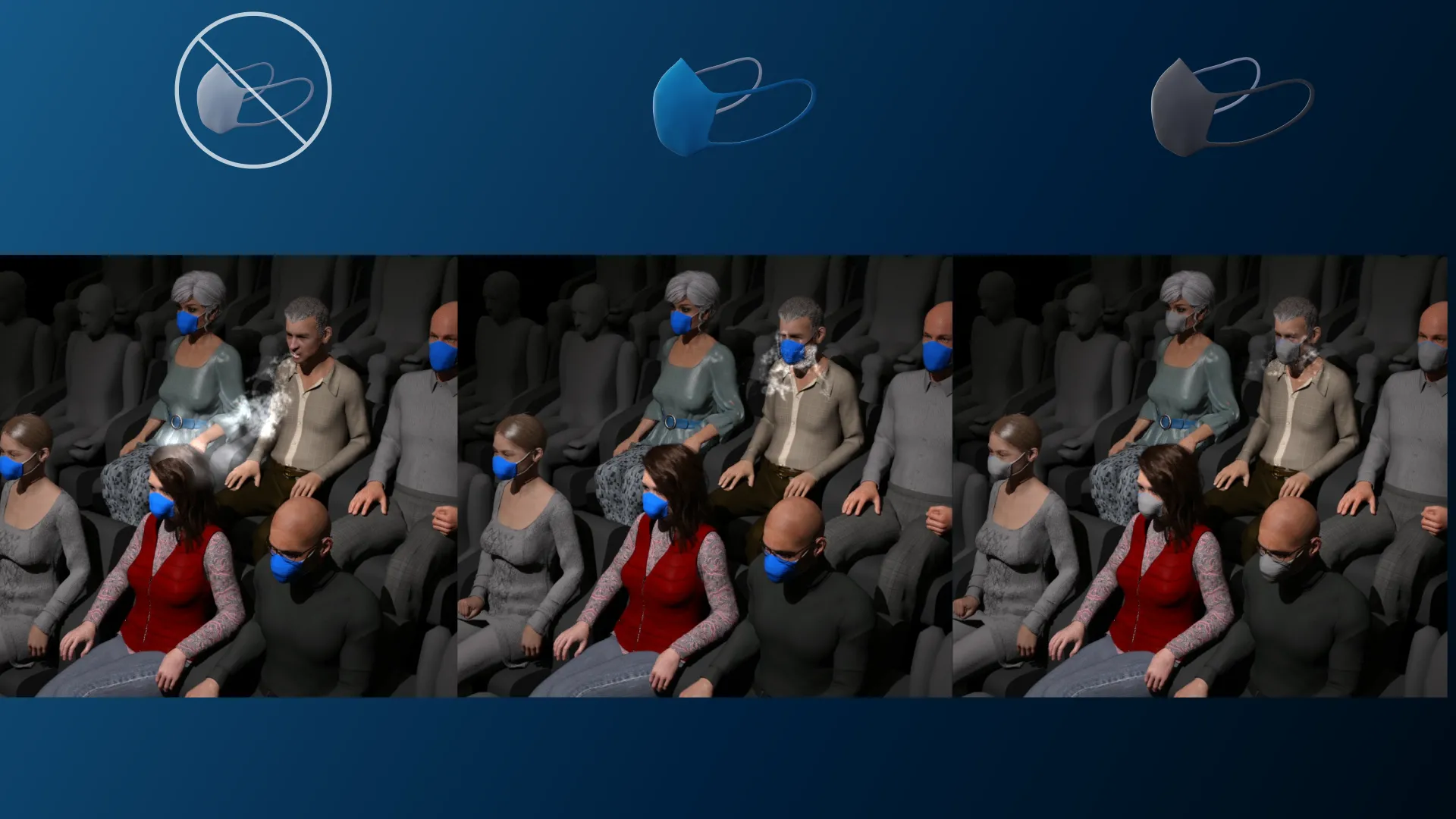Dassault Systèmes Collaborates with the Philharmonie de Paris on the Safe Return of Audiences and Orchestras to Its Largest Concert Hall
- Dassault Systèmes created a model of the concert hall in 3D to evaluate the philharmonic’s safety measures following COVID-19 pandemic lockdown
- Simulating the airflow inside revealed the positive impacts of masks and reduced ventilation on virus particle propagation
- Virtual worlds allow for experimentation to reveal the unknown

VELIZY-VILLACOUBLAY, France — December 16, 2020 — Dassault Systèmes (Euronext Paris: #13065, DSY.PA) helped the Philharmonie de Paris, the French capital city’s philharmonic landmark, prepare to safely reopen its largest concert hall following the end of COVID-19 pandemic-related lockdowns. Simulation was used to experience and understand how air circulates within the space, evaluate the effectiveness of the Philharmonie de Paris’ preventive measures, and identify new ones if necessary.
With a capacity of 2,400 seats, the Grande salle Pierre Boulez features an enveloping configuration that immerses the concert hall audience in the music, and a unique ventilation system in each seat that quietly introduces fresh air and regulates its direction and speed. Equipped with data provided by the Philharmonie de Paris, Dassault Systèmes, provider of 3D digital technologies, used its simulation software to create a model of the concert hall at full capacity in 3D, and visualize the airflow from the uppermost balconies to the orchestra floor, in order to assess the impacts of mask-wearing and airflow on virus particle propagation.

Multiple scenarios illustrated the concentration of particles emitted by a member of the audience coughing with and without a mask on while infected with the virus. They also demonstrated the spread of these particles to other concertgoers, the musicians and the conductor, based on the ventilation system of each seat and the different directions in which the air flows around the concert hall’s stairways, seats and floor.
The simulations revealed a lower risk of virus particle propagation when audience members wear fitted masks and each seat’s ventilation is reduced by 50%. Masks, especially when fitted, play a major role in reducing the amount of particles emitted in the air and the speed of the emission, making them an important first barrier. The simulations also showed that the concert hall behaves more like an open air situation with very limited risk of propagation from one side to another. The ventilation system naturally reduces the risk of contamination by limiting lateral movement of the air and directing it behind the audience and the musicians.
“Safety is nonnegotiable, for our public, artists and staff. This is why we decided to partner with Dassault Systèmes. Thanks to their cutting-edge simulation technology, we are prepared to reopen our concert hall in the best possible conditions,” said Laurent Bayle, Managing Director, Philharmonie de Paris.
In parallel, simulations of the airflow in the entrance to the concert hall confirmed that the mask-wearing and social distancing measures already in place are appropriate for that particular area.
“Our collaboration with the Philharmonie de Paris is part of our ongoing efforts to help organizations simulate, visualize and analyze existing conditions, evaluate the impact of ‘what-if’ scenarios, and identify solutions to open and operate safely,” said Florence Verzelen, Executive Vice President, Industry, Marketing and Sustainability, Dassault Systèmes. “There are no rehearsals in life. As the real world struggles to emerge from pandemic-related lockdowns, the virtual world allows for experimentation to reveal these unknowns.”
About Dassault Systèmes
Dassault Systèmes is a catalyst for human progress. Since 1981, the company has pioneered virtual worlds to improve real life for consumers, patients and citizens. With Dassault Systèmes’ 3DEXPERIENCE platform, 370,000 customers of all sizes, in all industries, can collaborate, imagine and create sustainable innovations that drive meaningful impact. For more information, visit: www.3ds.com